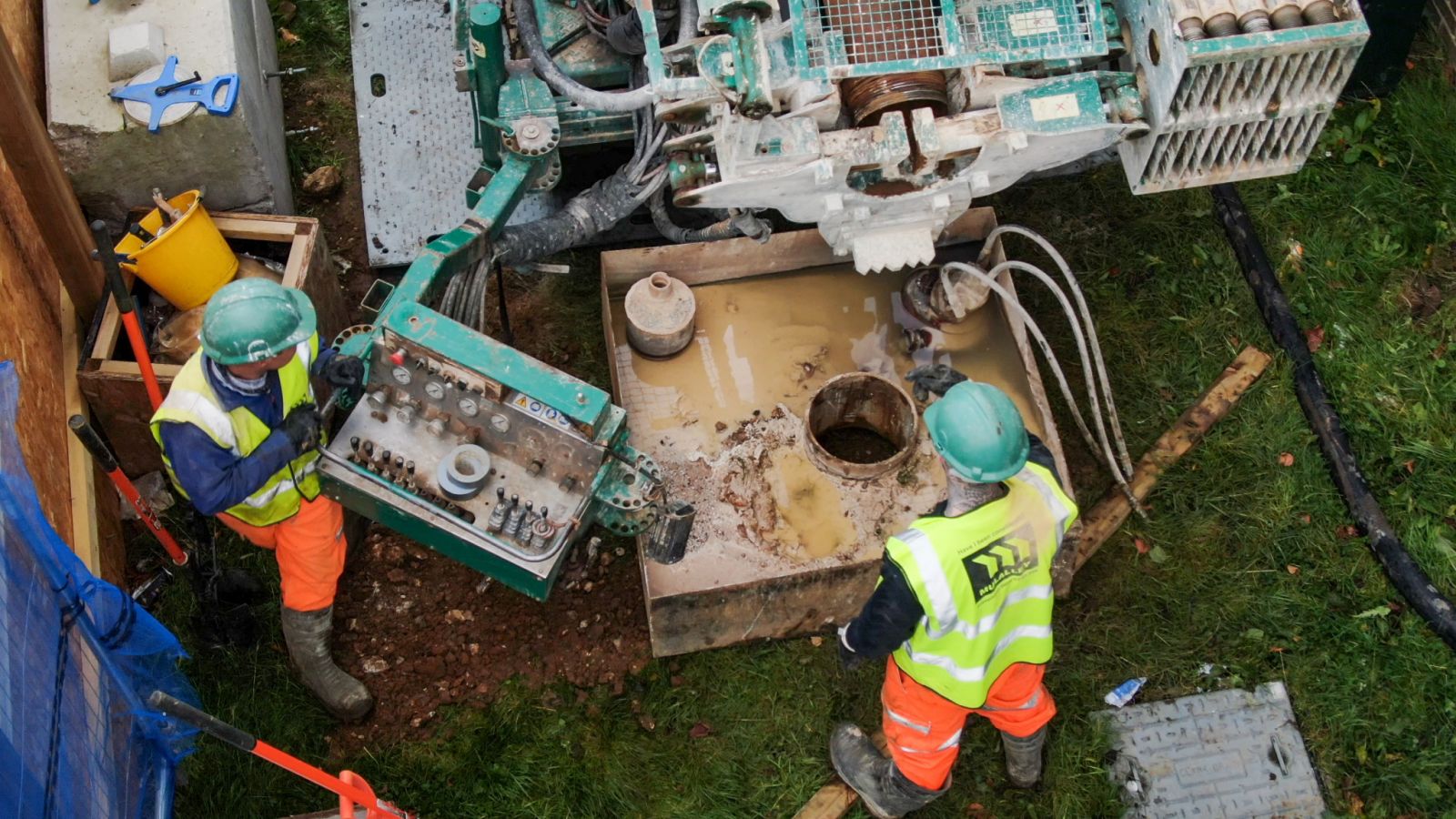Glasgow's Green Street – Decarbonising via Heat Pumps
Green Street in Glasgow, just a stone’s throw from COP26 will show that the only way to install 600,000 heat pumps a year and hit net zero is by replacing the...
Read Full Article
A new decarbonisation scheme that aims to encourage local authorities in England to retrofit buildings with low-carbon heating and insulation has launched.
The primary objective of the Social Housing Decarbonisation Fund (SHDF) is to upgrade a significant amount of England’s 4.1 million social homes to an Energy Performance Certificate (EPC) rating of C by 2030. Currently, nearly 40 per cent of properties fall below this, with fuel poverty posing a serious risk for residents.
However, with the energy we use for heating and powering our non-domestic buildings being responsible for around 12 per cent of the UK’s emissions, might such retrofitted projects also benefit commercial properties?
The Ground Source Heat Pump Association states that for each kilowatt of electricity used to run the heat pump, three to four kilowatts of heat can be delivered to the building.
Ground Source Heat Pump (GSHP) systems are common in the USA, Canada, Sweden, Switzerland and Germany. The principles of ground source heat pumps were first described by Lord Kelvin in the 1850s and continuous development since they were first used commercially more than 50 years ago has greatly improved their efficiency.

Picture: a photograph of a heat pump being installed
Interestingly, a heat pump for a small building is about the size of a large fridge, but more powerful heat pumps for commercial buildings do not increase in size or price as much as they do in power output.
GHSPs can also provide cooling, with reverse-cycle heat pumps deliver both heating and cooling effectively. The Ground Source Heat Pump Association suggests that cooling provided by heat exchange with the cold ground is inherently more efficient than air conditioning which typically exchanges heat with hot air. The heating cost in winter will also be reduced if you are using cooling in summer as the heat pump will have access to warmer temperatures from the ground.
The UK government has committed to reducing emissions to net-zero by 2050, and over 10 years, the SHDF fund will potentially provide up to £3.8 billion in subsequent funding waves to encourage retrofitting for carbon efficiency.
Under the scheme’s guidelines, low carbon heating, including ground source heat pumps, can be installed where a "fabric first approach is taken". Electrically-powered ground source heat pumps are sustainable, non-combustion devices generating no point of use emissions or pollution, and have been highlighted by the government as a key part of the UK’s strategy to decarbonise heat, of which 37 per cent of total UK carbon emissions are attributed to.
Using freely available heat energy from the ground, a ground source heat pump can deliver 3 to 4 kilowatts (kW) of heat for every 1kW of electricity it consumes, making it highly efficient. While modern condensing boilers can be up to 90 per cent efficient, a ground source heat pump can achieve efficiencies of 400 per cent, without the carbon emissions or air pollution created by burning fossil fuels.
There is an 8-week application window for the first wave of SHDF funding bids, beginning on 23 August and ending on 15 October. To help capitalise on this opportunity, Kensa Contracting will be delivering free CPD sessions showcasing the benefits of ground source heat pumps in social housing with large-scale retrofit case studies and demonstrating how the technology is eligible under the scheme. Local authorities are invited to register their interest here: https://kensa.group/shdf-cpd.
Picture: a photograph of a tower block in Croydon, where a retrofit of a three tower-block scheme with Kensa Contracting and Croydon Council.
Article written by Ella Tansley | Published 23 August 2021
Green Street in Glasgow, just a stone’s throw from COP26 will show that the only way to install 600,000 heat pumps a year and hit net zero is by replacing the...
Read Full ArticleHundreds of public buildings in England will cut their use of fossil fuels and advance towards low carbon heating and energy efficiency upgrades, thanks to £553...
Read Full ArticleTriple Point Heat Networks Investment Management has announced funding awards to a suite of low carbon heat network projects. Following the publication of the...
Read Full ArticleThe UK’s path to net-zero has been published by the Department for Business, Energy & Industrial Strategy. The plans detail how the UK will secure...
Read Full ArticleThe £3.1 million scheme to decarbonise Arup’s headquarters at 8 Fitzroy Street is now complete. Dalkia has delivered the validation, detailed coordination,...
Read Full ArticleCan the built environment unlock substantial carbon savings by scrutinising mechanical, electrical and plumbing systems? Max Gibbens, Senior Environmental Consultant...
Read Full ArticleBarratt Redrow is set to deliver the UK’s largest net-zero carbon housing development. With 576 new homes, a new primary school, open space, community buildings,...
Read Full ArticleLuke Gorman from ABM explores the impact of HVAC on the environment and how facilities management now functions as a strategic ESG partner. Luke graduated from...
Read Full ArticleThe Building Research Establishment will work with the Department for Energy Security and Net Zero to develop both the Home Energy Model product recognition system and...
Read Full ArticleThe Science Based Targets initiative is seeking feedback on new proposals to change how companies set & deliver net-zero targets. Watch the...
Read Full Article